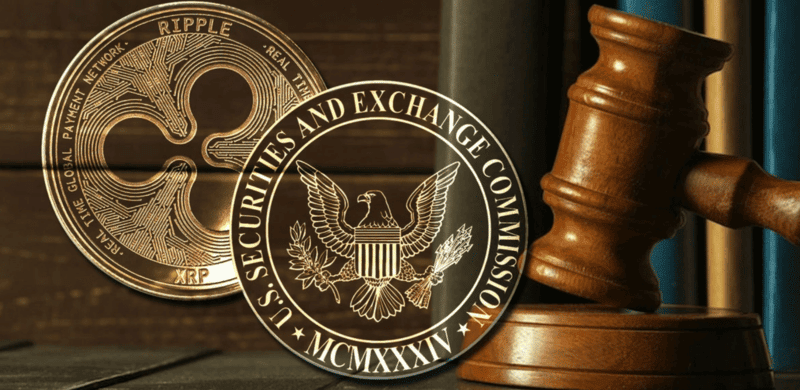- Ripple fights back against the SEC’s appeal, arguing that it doesn’t meet the standards for interlocutory appeal.
- The lawsuit’s outcome could have far-reaching implications for the cryptocurrency industry, particularly regarding the use of XRP for cross-border payments.
In a developing story that has captured the attention of the cryptocurrency industry, Finbold News reports on Ripple’s ongoing legal tussle with the United States Securities and Exchange Commission (SEC). Ripple has gained some ground after the court’s initial ruling, which deemed XRP a security, but the firm is not backing down.
Ripple Asserts SEC’s Appeal Lacks Merit
On September 1, James Filan, a defense attorney closely following the case, posted on X (formerly Twitter) that Ripple has opposed the SEC’s plan to appeal the initial decision. Ripple argues that the SEC’s appeal does not meet the necessary requirements for what is termed an “interlocutory appeal.”
Ripple claimed that the SEC “has not even attempted to meet the standard for a stay, even after the Individual Defendants identified that omission in their pre-motion letter.” Essentially, Ripple is asserting that the SEC deviated from established legal norms, particularly when applying the Howey test to XRP’s token sales.
A Conditional Path to Resolution
John Deaton, a lawyer sympathetic to XRP, outlined on September 2 via an X post several scenarios under which the two parties might reach a settlement. Deaton emphasized the significance of an ongoing case between Coinbase and the SEC. Should the Coinbase case be dismissed, it would substantially narrow the SEC’s scope for an appeal against Ripple, making a settlement more likely.
Here’s is a small yet significant example of how the lawsuit hurt #XRP’s adoption. I was just purchasing an item over the internet and the payment options include: “Pay with cryptocurrency with @BitPay.”
BitPay originally included #XRP – it was one of the first ones utilized.… pic.twitter.com/MGsbWEGnOA
— John E Deaton (@JohnEDeaton1) September 3, 2023
In a series of tweets dated August 22, John E Deaton pointed out that Coinbase had listed XRP on its platform and even expanded into cross-border payments using XRP. MoneyGram, another major company, followed suit and started using XRP for its cross-border transactions. Despite these developments, the SEC filed a lawsuit against Ripple, hindering XRP’s broader adoption. Deaton observed that even BitPay had to cease XRP transactions in the U.S. following the lawsuit.
Impact of Other SEC Crypto Cases
Recent performance by the SEC in other crypto-related lawsuits could serve as a precedent for this case. Stuart Alderoty, Ripple’s Chief Legal Officer, noted that the SEC hasn’t fared well in other cases, including a recent appeals court directive for the SEC to review its rejection of Grayscale’s Bitcoin ETF application. Ripple CEO Brad Garlinghouse even called the SEC “out of control” based on its recent courtroom performances.
Ripple vs. SEC: A Multi-Faceted Appeal
Ripple has contested that the SEC’s grounds for an appeal are not controlling questions of law, therefore not meriting a review. The SEC has claimed that the Ripple case will influence its actions against other crypto entities like Terraform, Coinbase, and Binance. Ripple disagrees, stating that the court would have to study the record in depth, just as it did initially, to make a decision.
The SEC has declared its availability for trial in Q2 2024, but the company argues that even if the SEC were to win the appeal, it would not speed up the case’s resolution. Ripple further asks for the SEC’s request for a stay to be denied, arguing the regulator hasn’t met the standard for one.
Recommended for you:
- Buy Ripple (XRP) Guide
- Ripple XRP Wallet Tutorial
- Check 24-hour XRP Price
- More Ripple (XRP) News
- What is Ripple (XRP)?
Subscribe to our daily newsletter!
No spam, no lies, only insights. You can unsubscribe at any time.




